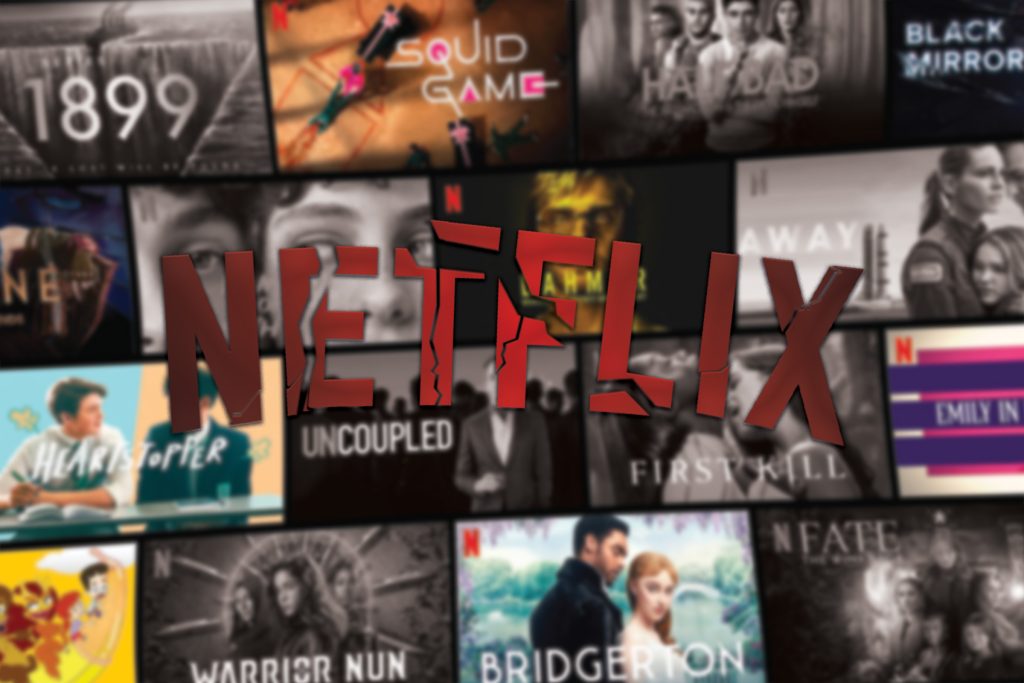Netflix’s “Cancel Culture:” A dissection of the streaming giant’s cancellation patterns

It seems like Netflix is canceling shows quicker than they’re creating them these days.
Imagine this: after sifting through what seems like endless low-budget, no-name titles you’ve finally found a new show on Netflix that you like. You binge the first season, dismayed when you realize there isn’t another. “Yet!” you think. With newfound joy, you search up when the next season will be out. Only, instead of confirmation dates, you’re met with headlines confirming the worst. It’s happened again, your new favorite Netflix show has been canceled.
A little melodramatic, sure, but if you said you’d never found yourself in the same situation, you’d be in the minority.
The streaming giant kicked off the start of their original programming, Netflix Originals, with the hit show “House of Cards.” And a hit it was, by the end of its final season in 2018 it had received 56 Emmy nominations, 7 of them wins, as well as 8 Golden Globe nominations and 2 wins. The major success of the show was all the encouragement Netflix needed. Five years later, the streaming service now has over 1,500 original productions worldwide, the majority of which are TV shows.
But how impressive is this figure when you consider how often these titles end quickly, sometimes months, after being aired? Netflix’s willingness to cancel productions in seemingly rash or unexpected circumstances is not new. Last year, Netflix canceled 20 original series. The year before that, it was 22.
This trend has, understandably, upset countless viewers whose favorite TV shows ended for what seems to them unclear reasons.
A recent example is “Warrior Nun,” which aired in 2020 and received “generally positive reviews,” as reported by Screenrant’s Sarah Laudenbach, and garnered a considerable, dedicated fanbase. However, Netflix canceled the show after its second season. Impressively, the fanbase reacted by erecting a billboard outside Netflix headquarters, reading “#SaveWarriorNun.”
Surprise!!!! We did it! We have an AWESOME billboard that was put up today! Fun fact about the board, it’s in Netflix’s front yard. @netflix execs and employees will see this for 4 straight weeks. #SaveWarriorNun #WarriorNun pic.twitter.com/kB1O0I9yVZ
— Sarah (@angrytrashacct) January 20, 2023
Another recent example is the case of “1899”, a period-piece science-fiction show. According to Netflix’s own top 10 metrics, “1899” ended its first full week with 87.8 million hours, and was #2 in the world for over a week. Thus, it came as a great shock when Netflix announced its cancellation shortly after.
What gives? Why does Netflix seem so trigger-happy when it comes to their own original TV productions, especially when they seem to have such large fanbases and positive reception?
It may have less to do with fanbase and more to do with longevity, argues Andy Meek of BGR. Netflix has a specific metric that they keep track of, called the “completion rate.” As explained by Paul Tassi at Forbes, this is “what percent of a show’s audience actually finishes the show.” For example, despite “1899“‘s positive reception and high view-count, its third week saw a plummet in hours viewed at 44.6 million, and its fourth dropped even lower, to 27.5 million hours.
A similar trend can be seen with several of Netflix’s original series, as evidenced by Forbes. Shows Heartstopper, Squid Game, and Arcane all had completion rates of 60% or higher, were therefore were renewed. In contrast, Resident Evil, The Irregulars, and First Kill all had completion rates of 45% or below, and were subsequently canceled.
In an interview with Bloomberg regarding the outrage behind a flurry of cancellations, Netflix co-CEO Ted Sarandos said that Netflix has “never canceled a successful show. A lot of these shows were well-intended but talk to a very small audience on a very big budget. The key to it is you have to be able to talk to a small audience on a small budget and a large audience at a large budget. If you do that well, you can do that forever.”
Ted Sarandos, Netflix’s co-CEO says that they have never canceled a successful show:
— Film Updates (@FilmUpdates) January 23, 2023
“A lot of these shows were well-intended but talk to a very small audience on a very big budget.”https://t.co/AOtYTMPJeM pic.twitter.com/p9wvdv3A0G
Even still, this begs the question: is the multi million dollar investment in TV shows followed by swift cancellation worth the dissatisfaction and frustration among Netflix’s audience?
“I dont even want to watch a show on netflix unless it already has 3 seasons,” one user on Twitter said. “I only got 2 episodes into Resident Evil before it got cancelled. Dont see a point to finish it now because I just know its gonna end on a sequel bait cliffhanger with no conclusion forever.”
So far this year, 5 original series have been axed, and there seem to be even more on the chopping block. Only time will tell what will happen to Netflix’s line-up, and how renewals will differ.




















